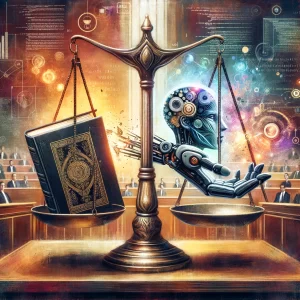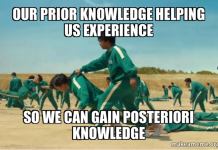Background
The famous comedian and author Sarah Silverman (Silverman et al v. OpenAI, Inc. et al, 23-cv-3416), and the famous author Paul Tremblay (Tremblay et al v. OpenAI, Inc. et al, 23-cv-3223), also representing other authors, (“Authors”), had filed a lawsuit against tech giant OpenAI[i] alleging that the company used their copyrighted books and works without taking their consent or giving them compensation to train their AI text generative system, ChatGPT.
This particular case garnered significant attention because it raised questions about the legal boundaries of copyright law regarding the use of copyrighted works for training AI generative models. Several authors and entities (such as The New York Times) have recently challenged the use of their copyrighted works in Artificial Intelligence generative tools, including a recent legal challenge against Nvidia for its AI platform NeMo.[ii]
We will discuss this decision of the US District Court in Paul Tremblay v. OpenAI[iii] that dismissed mostly all the claims made by the Authors, except for unfair business practice claim, and the direct copyright infringement claim which was, surprisingly, not requested for dismissal by OpenAI.[iv]
Summary of the Claims
There were six claims asserted by the Authors against OpenAI, listed as follows:
- Direct Copyright Infringement (meaning where a work is copied without the permission of the owner);
- Vicarious Infringement (where infringement occurs by a party because they had control or supervision over the direct infringer);
- Violation of DMCA due to removal of CMI from the text output; (Copyright Management Information (CMI) means essential details related to copyrighted works, such as the title, authors, copyright owner details, and terms of license, etc., of the work)
- Unfair Competition; (competitor seeking advantage by unfair business practices)
- Negligence; (harm due to failure to take proper care of something)
- Unjust Enrichment. (benefits wrongly obtained at the expense of another party)
Open AI had moved the Court to dismiss all the claims alleged by the Authors except the first one, that is, direct copyright infringement.
Judgement
- Vicarious Infringement
With references to previous case laws, the Court stated that copyright infringement requires a plaintiff to show that “he owns [a] valid copyright” and the defendant “copied aspects of his work.”
A claim of vicarious infringement, on the other hand, further requires: (1) a threshold showing of direct infringement; (2) showing that the defendant has the right and ability to supervise the infringing conduct; and (3) defendant has a direct financial interest in the infringing activity.
Open AI challenged the vicarious copyright infringement claim of the Authors on the ground that they had failed to prove any of the above three grounds.
The Authors argued that they didn’t need to establish substantial similarity because they had evidence of direct copying by OpenAI due to the use of copyrighted books to train language models. The Authors also cited the case law of Range Rd. Music, Inc. v. E. Coast Foods, Inc.,[v] to strengthen its claim, in which case there was infringement by public performance of copyrighted songs at a bar, and the plaintiffs did not have to show substantial similarity as they had provided unrebutted evidence that the performed songs were copyrighted.
However, the Court found that the Authors were required to demonstrate substantial similarity between the outputs and the copyrighted materials. The case of Range Rd. (above) was not relevant to the present fact matrix as in that case, there was direct performance of copyrighted songs, however here, the output given by ChatGPT did not copy directly the copyrighted books.
As the Authors couldn’t prove substantial similarity, the court dismissed the vicarious copyright infringement claim with leave to amend.
- Violation of S. 1202(b) of the DMCA
The Authors had alleged that ChatGPT did not reproduce any of the CMI that the Authors had included with their published works. Copyright Management Information (CMI) means essential details related to copyrighted works, such as the title, authors, copyright owner details, and terms of license, etc., of the work.
Under Digital Millennium Copyright Act (DMCA), Title 17 U.S.C. § 1202, it is unlawful to remove CMI from the works; or to distribute, import for distribution or perform works with the CMI removed; where the offender has reasonable grounds to know that it will be infringement of any right under the federal copyright law.
The Court said that the plaintiff (Authors) must make an affirmative showing, such as by demonstrating a past ‘pattern of conduct’ or ‘modus operandi,’ that the defendant (OpenAI) was aware or had reasonable grounds to be aware of the probable future impact of its actions.
The Authors claimed that OpenAI intentionally removed CMI from the books used in training of ChatGPT. However, the Court found that they lacked evidence to support this assertion. In fact, there were text outputs given by ChatGPT, when asked to summarize the books, where Author’s names were included, example: “Throughout these chapters, Tremblay masterfully maintains the suspense and psychological terror”.
Even if they could prove the removal of CMI, they had not shown how it would induce, enable, facilitate, or conceal infringement. The Authors had also failed to prove any distribution or reproduction of the books where the CMI was not included by ChatGPT. Therefore, this claim was dismissed with leave to amend.
- Unfair Competition
A business act or practice may violate the unfair competition law if it is either one of the three: ‘unlawful,’ ‘unfair,’ or ‘fraudulent.’
Not Allowed: It was alleged that OpenAI engaged in ‘unlawful’ business practice because they violated DMCA. However, as it was held above, violation of the DMCA by OpenAI was not proved. However, even if such violation was proved, it was further necessary to prove that economic injury was suffered by the Authors. They failed to prove this as well, therefore, this claim was unsuccessful.
Not Allowed: It was alleged that OpenAI engaged in ‘fraudulent’ business practice because they violated the copyright law as users were likely to be deceived where no CMI was added in the text output. The Court stated that, as this claim rested on the violation of DMCA by OpenAI, which was already dismissed above, the Authors had failed in its claim here.
Allowed: However, for ‘unfair’ business practice, the Court concluded, assuming Authors were right in the allegation that – OpenAI had used the books of the Authors to train the ChatGPT language model for commercial profits – such conduct could constitute as an ‘unfair’ business practice violating the unfair competition law, hence, this claim was allowed to proceed.
- Negligence
Negligence claims require that a plaintiff establish (1) duty; (2) breach; (3) causation; and (4) damages. Authors alleged that OpenAI owed them a duty of care based on the control of information in their possession and breached their duty by “negligently, carelessly, and recklessly collecting, maintaining, and controlling systems – including ChatGPT – which are trained on Plaintiffs’ [copyrighted] works.”
The Court observed that there was no legal support in the contention that OpenAI owed a duty to safeguard Authors’ works. Also, Authors did not identify what duty exists to maintain and control the public information contained in the books. Authors had also not alleged if there was any fiduciary or custodial relationship between the parties. Hence, this negligence claim was dismissed with leave to amend.
- Unjust Enrichment
It must be shown that OpenAI received and unjustly retained a benefit at the Author’s expense to allege unjust enrichment. Restitution is not available unless “the benefits were conferred by mistake, fraud, coercion or request.”
It was held that because the Authors failed to allege that OpenAI unjustly obtained benefits from copyrighted works through fraud, mistake, coercion, or request, this claim of unjust enrichment also failed.
The Ruling
Therefore, out of all the claims brought forth by the Authors, the Court allowed claim 1 (direct copyright infringement) and claim 4 (unfair business practice), but dismissed all other claims, with leave granted to the Authors for filing amended claims.
The deadline for filing such amended claims was March 13, 2024, it is safe to assume that they would be filed in the Court by now. It is to be seen how OpenAI responds to these amended claims and the Court’s decision on the same.
Sarah Silverman was involved in a similar case before. A petition was filed by her against Meta, inter alia, for using derivative versions of her books without permission in Meta’s AI model Llama. However, the judge dismissed some of her claims, labelling them as “nonsensical”.[vi]
End notes:
[i] https://variety.com/2023/digital/news/sarah-silverman-sues-meta-openai-copyright-infringement-1235665185/
[ii] https://www.republicworld.com/tech/artificial-intelligence/authors-sue-nvidia-over-alleged-copyright-infringement-in-training-nemo-ai/
[iii] Paul Tremblay v. OpenAI, Case 3:23-cv-03223-AMO
[iv] Ibid, Page 3, Line 18
[v] 668 F.3d 1148, 1154 (9th Cir. 2012)
[vi] https://www.beyondgames.biz/45018/judge-labels-sarah-silvermans-meta-ai-lawsuit-nonsensical/
Image created on Dall-e




















[…] en cuanto a la autoría y la protección de derechos de autor. Casos judiciales recientes, como Tremblay v. OpenAI, Silverman et al. v. OpenAI, Silverman et al. v. OpenAI Inc. y Getty Images v. Stability AI, subrayan la necesidad de […]
[…] Some cases have seen some development, such as the case of author Sarah Silverman (Silverman et al v. OpenAI, Inc.), and the famous author Paul Tremblay (Tremblay et al v. OpenAI, Inc.), filed a lawsuit against OpenAI alleging that the company used their copyrighted books and works without taking their consent or giving them compensation to train their AI text generative system, ChatGPT. Out of all the claims brought forth by the Authors, the Court allowed their direct copyright infringement claim and unfair business practice claim to proceed to trial, but dismissed all other claims, with leave granted to the Authors for filing amended claims. You can access a discussion of this case here. […]